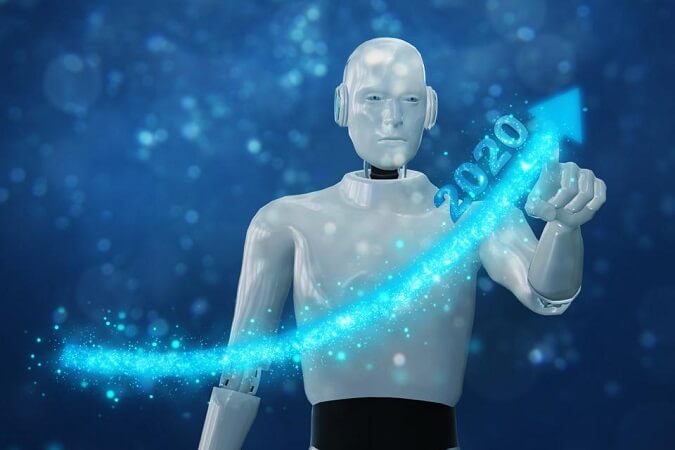That artificial intelligence (AI) is intrinsic to the digital transformation that society has undergone is something that many already know. And they not only know this, but they are also intelligently seeking to take advantage of the opportunities offered by this scenario based on the great scientific advances that have occurred in recent years.
I think that in this context it is worth reflecting on what the future holds for us, thinking beyond the improvements in computing power and computational efficiency typically associated with AI.
In 2020, three themes will shape the advancement of this technology: automation, natural language processing (NLP), and reliability.
Overall, we will witness artificial intelligence systems that will work faster and easier for data scientists, businesses, and consumers, through automation in the use of artificial intelligence.
In the not too distant future, it is certain that more AI systems will begin to depend on neuro-symbolic technology, which combines numerical learning with symbolic processing. Neuro-symbolic systems are the key to advances in NLP technologies, as they help computers to better understand human language and conversations, and incorporate the domain of knowledge.
These discoveries will soon help companies implement more automated customer service and technical support tools, based on conversation functionality. But thanks to the use of symbolic processing, much less data will be needed to train the AI.
Another important point is that AI will not make us lose work, but it will change the way we work. Of course AI will continue to have an impact on the work environment for years to come. But the fear that humans feel of losing their jobs due to the advance of the machines is unjustified. Instead, AI will transform the way people work by automating routine tasks.
It will increasingly help us with tasks that involve data monitoring, but should have a less direct impact on tasks that require more complex human skills, those involving design knowledge and experience.
Professionals in 2020 will begin to see these effects as AI enters their workplaces worldwide. Companies will begin to adapt functions and processes, while employees should focus on expanding their knowledge.
Now let’s talk about reliability. It may seem obvious that to trust AI, systems must be trustworthy, fair and responsible. We must ensure that the public can be certain that the technology is secure and that its conclusions or recommendations are not biased or manipulated.
This year, we will begin to see that the components that regulate reliability will be intertwined with the AI life cycle structure to help us create, test, run, monitor, and certify AI applications for their reliability, not just their performance.
As with the emergence of AutoIA, which uses artificial intelligence to create AI systems, artificial intelligence tools will emerge that will govern artificial intelligence itself. This adoption will create more reliable AI workflows across all sectors, especially those that are heavily regulated.
And of course, AI will also be greener in 2020. In times of concern about the sustainability issues we face, more efforts can be expected to make AI technology an environmental ally.
This includes the creation of new materials, such as “transition metal oxides”, which make the devices more flexible; new chip designs with analog and mixed signal processing, as well as new software techniques based on approximate computation, the objective of which is to increase the efficiency in the processing of the growing AI workloads and, therefore, to reduce their carbon.
Although we have observed in recent centuries an increasing development of research related to the creation of new materials and medicines, it is a fact that researchers still have certain difficulties in understanding hundreds of thousands of possible reactions when creating different molecules. The large volume of information means that it is very difficult for a scientist to remember all kinds of molecular reactions. It is impossible to be an expert in everything.
And now, they may not even need it. IBM has developed an AI tool that can predict millions of chemical reactions, both forward and backward, in addition to synthesizing molecules in the cloud, called RXN for Chemistry (now available for testing). By 2020, we should already see significant growth in AI and automation capacity to spur advances in materials discovery and development.
